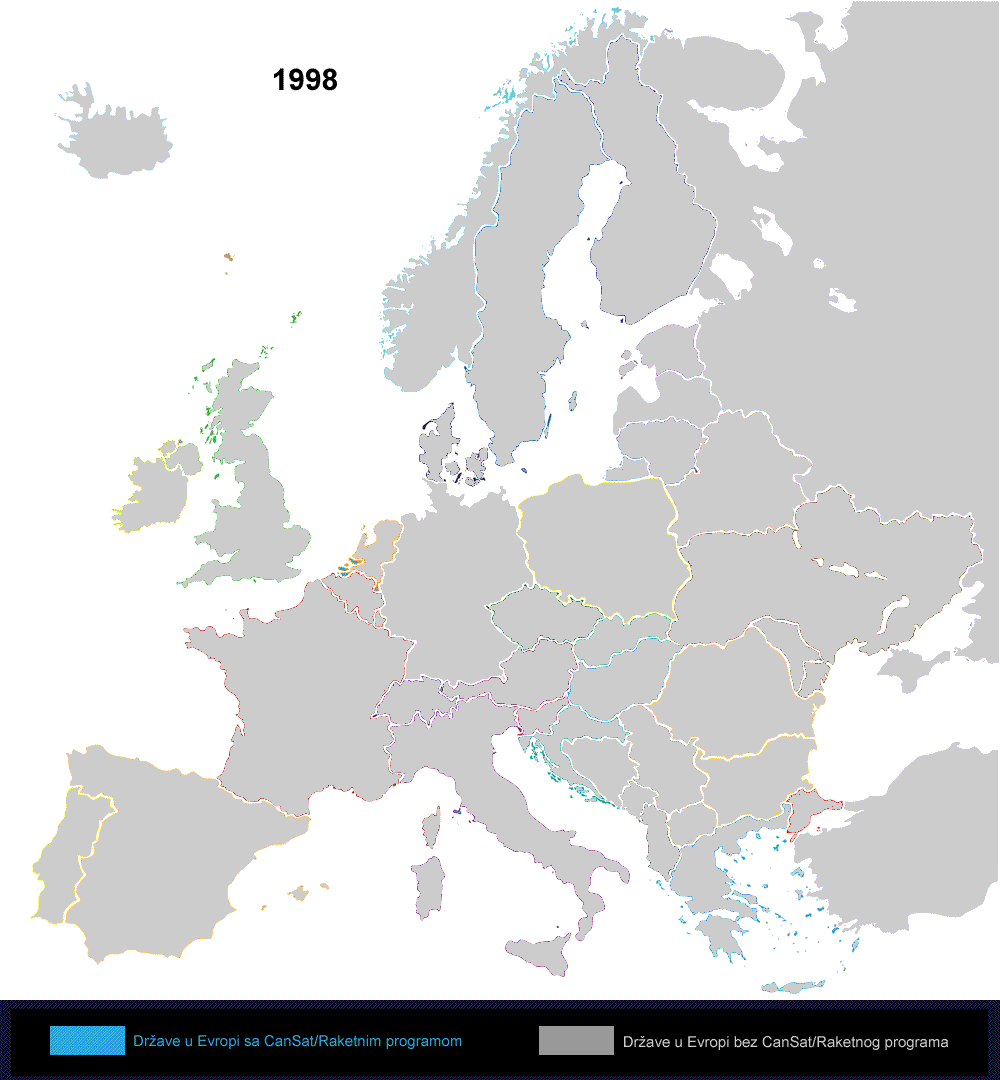By mid-April 2019, a call for students to join the Space program is open.
The program covers three areas:
- COMMUNICATION WITH SATELLITES AND ISS
- CANSAT/ROCKETRY PROGRAM
- SATELLITE DESIGN
By mid-April 2019, a call for students to join the Space program is open.
The program covers three areas:
The CANSAT/ROCKETRY INTERNATIONAL COMPETITION (CRIC2019) for students will be held from 4th to 6th October 2019 at the airport “Veliki Radinci”.
The competition will be held simultaneously with the International Model Rocket Competition and the CanSat/Rocketry National Competition.
CanSat/Rocketry National Competition for elementary and secondary school students will be held on October 6, 2019 at the airport „Veliki Radinci“.
The competition will be held simultaneously with the International Model Rocket Competition and the CanSat/Rocketry International Competition (CRIC2019).
From April 2019, students of elementary and secondary schools will be allowed to visit the Aerospace Center at the Airport “Veliki Radinci” to get acquainted with the aerospace program.
Program details (serbian language)…
On 26.01.2019. the representatives of the Committee, at the invitation of prof. dr Andras Gschwindt from the Budapest Technical University, attended a meeting to establish cooperation between Serbia and Hungary in the field of space engineering. The meeting was attended by representatives of the Committee and prof. Gschwindt, and a representative of the Hungarian Ministry of Foreign Affairs in charge of the Hungarian space program dr Orsolya Ferencz and the head of Hungarian ground stations Mr. Emil Hodl. It was agreed that the Committee can use laboratories at the University and the Hungarian ground stations (antennas), as well as to start activities aimed to design of HUN-SRB satellite.
On 11.11.2018. on the airport “Veliki Radinci”, a cooperation agreement was signed between the Committee and the Aero club “Sremska Mitrovica”. By the agreement is established the Aerospace Center at the Airport and defined cooperation in the field of space engineering, as well as activities within the scope: trainings, school trips, competitions etc.
The realization of the theoretical and practical program in the field of space engineering for elementary and secondary school age in Serbia started. Within this educational program, students will build their satellites (so-called CanSat) and rockets in their schools. CanSat / Rocketry program is in line with all other similar programs (EU, Russia, USA, Japan, Canada, India, etc.) so that our students will be fully equal with their peers throughout the world in the process of education and acquisition skills in this field.

Based on the Contract between GPAP (Italy) and CSPD (Serbia) from 4Q 2019, Serbia will officially have its mission in the Space by launching Italian FEES (Flexible Experimental Embedded Satellite) in low Earth orbit (height: 575km, orbit: SSO, Soyuz / Russia) …
GPAP: gpadvancedprojects.com